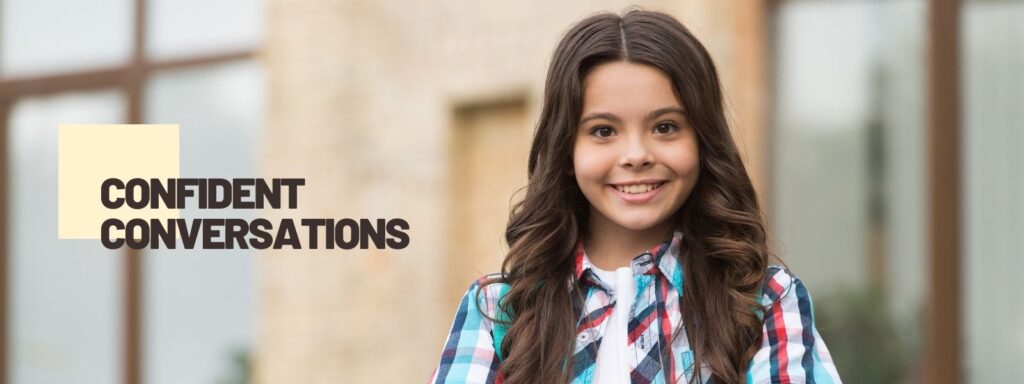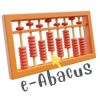CONFIDENT CONVERSATIONS
Aaa, Umm, Okaay, You know, Like..like, Basically, Well, I guess, May be – We all have heard these words while doing conversations, many of us even use them. But do you know, using these words is not the right practice. These words when used extensively while speaking are termed as fillers. Fillers are used to fill in “BLANK” spaces in our speech. Though there is nothing bad about these words, using these words frequently are bad habits which creep up while talking, and are mostly creation of our own. Fillers are also commonly known as Crutch Words.
Why do we use fillers or Crutch Words
We all have our own conversation styles and use different sets of words to express our views. Fillers come in when we loose the flow of our speech, mainly for the below reasons-
1. To cover up for the silence while we are thinking in our mind about what to speak next.
2. Limited or superficial understanding of the subject being talked.
3. Difficulty of speech in expressing our views.
4. Lack of vocabulary
5. Explain something at length, unnecessarily
What’s wrong with fillers
Frequently using fillers weaken your conversations. The audience loses interest when they hear a cluttered message. No matter how interesting your subject is, using crutch words distracts the audience, which ultimately dilutes the strength of your message and defeats purpose of the conversation. The audience also loses confidence over the speaker. Think about a scenario when you have experienced a speaker in front of a group who has sounded confused or came out nervous at last. If you try to think a bit deeper and analyse, most probably you would find that person using fillers in their speech.
No matter how interesting your subject is, using crutch words distracts the audience, which ultimately dilutes the strength of your message and defeats purpose of the conversation.
Crutch words also makes you appear unprepared in front of your audience. Very soon after you start your speech, your audience starts getting irritated and you can find people engaged over their gadgets or looking at the walls!
Commonly Used Crutch Words or Fillers
Though this depends from person to person and people have their own crutch words which they frequently use during their conversations, here are most commonly used fillers with examples of how they are used.
“Aaaa, Ummm, Errr”
These are classic fillers which are used to buy time while you are thinking about what to speak next or struggling to find out the right words.
Example: “I tried to complete the assignment by evening, but aaaaaaa…. this was…aaummmm…too detailed to cover.”
“You Know, you know what I mean”
Frequently used when trying to explain something but not clear how to explain.
Example: “I tried to code this way, you know…used the do while to get the loop and it worked once.. you know…but not working in this release you know, I mean, you know what I mean”
“Like”
When trying to explain with the help of some example, but not getting the right example.
Example: “It was a bad situation you know, and she was like…like…like just crying”
“Basically, totally, absolutely”
Unnecessary fillers used at the start, within or end of the sentence.
Example: “It is basically the same reason why I din’t talk to them”, or “It is the same reason why I didn’t talk to them basically”.
“I totally fail to understand what’s going on”.
“I absolutely don’t know what happened”.
“Literally”
This is the most abused crutch or filler used in conversations, without any need.
Example: “I literally lost it on them” or “They were pretending to be ignorant..literally”.
“I Guess”
Used when you are not confident of the answer but still want to sound confident.
Example: “Using green color is the right way to paint the leaves I guess”.
How to control and stop using fillers
This is the most important step once you realize that you are habitual of using fillers or crutch words. You need to gradually practice coming out of the filler mess in your conversations by following the below simple steps.
- Identify your fillers : Start with making a list of fillers you frequently use. A common problem is that you yourselves are not able to recognize that you are using such words. For the same, try getting your session recorded and watch yourself. Listening self would make you understand how you are sounding and where specifically you are using crutches. Identify specific situations and jot down.
- Practice your speech : Practice, practice and practice. This is the mantra towards being flawless. Identify opportunities for public speaking, start presenting, join speaking clubs and read as much as you can. Create a focus group of people from similar or varied interests, and start debating. Start writing down crutch words and fillers others are using with names. At the end of the session, present observations to each other. This would make you understand where you are making mistakes and you can tune yourself to stop using fillers and be clear with lesser speech.
- Practice pauses to eliminate silence in your speech: People generally fear being silent and use Umm, Aaaa and so on. Tune your content to include commas and periods, which can give you natural pauses without audience being distracted. Monitor where you can get struck, and repeatedly try to rephrase the sentence until you are confident to present the same without hiccups.
- Work over your content: Do not always try to be extempore when it comes to business and group sessions. Work on your content thoroughly. If you are supposed to go through a standard content, read and understand what needs to be conveyed. Rephrase the content in your own form/language and make notes. Know the conclusion, and build an interesting story line.
- Practice Mirror Speech: Stand in front of a mirror and start delivering the speech. Watch our how you are performing, is it content or body language or time you need to work on, and work over the minutest of the things you notice. Work over reducing the number of lines by being more meaningful in shorter and clearer messages. Do not think more content makes your speech the right one, but prefer quality than loads of content.
- Extend your Vocabulary: Spend as much time as you can reading good quality content. Try to learn 5 to 10 words a day, and try using them in your written and spoken content. This would strengthen your vocabulary, reducing the number of times you get struck up for words during speech. Use services like www.thesaurus.com or www.dictionary.com while you are travelling or whenever you are on the run.
Wrapping up
There are enough of public speaking platforms these days with ease of access where you can meet people like you and work over not just speech but how you speak, your body language, tone and other etiquette which can help refine your conversation style and make it more meaningful and clearer. You can start listening TedTalks and grasp finer things from the speakers or join Toastmasters and other similar clubs which can help you develop your art of speech.
Join the English Language Skills Development Program with Augment Edutech for all ages from 5+ years.
Learn from Basics to advanced level written and spoken English, align with Grammar.
Live online, group and exclusive classes for you.











